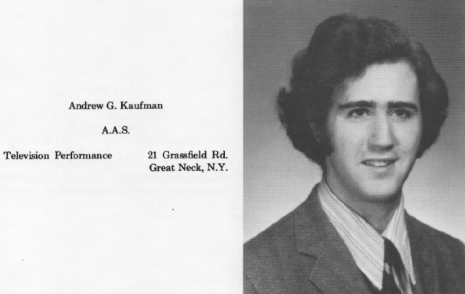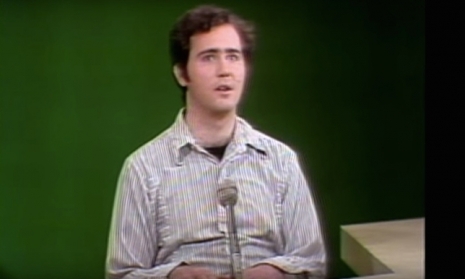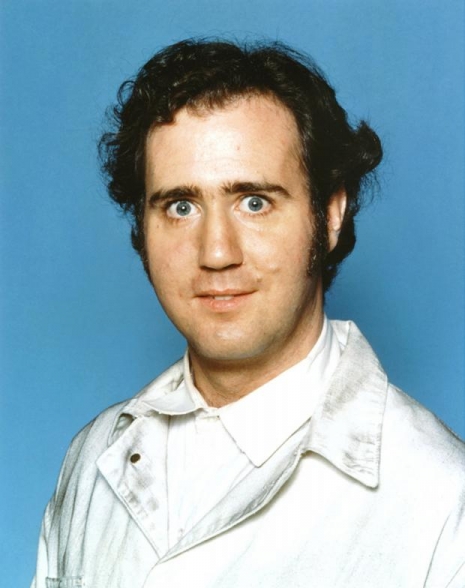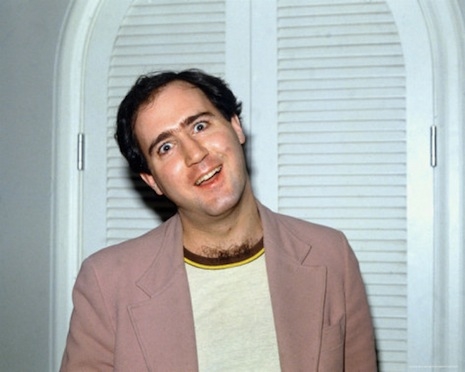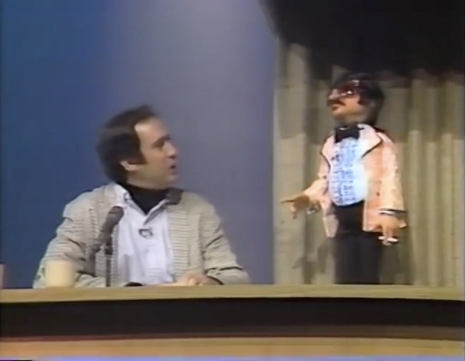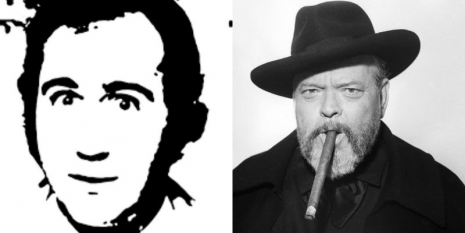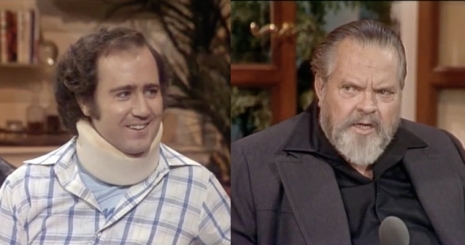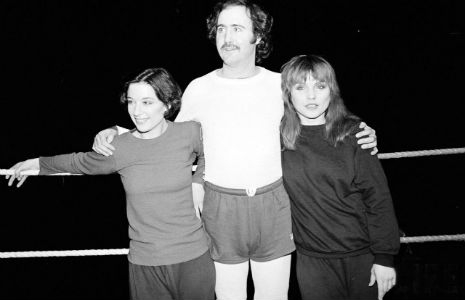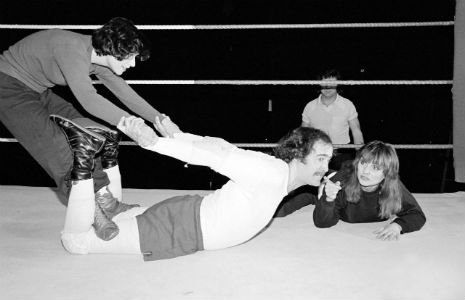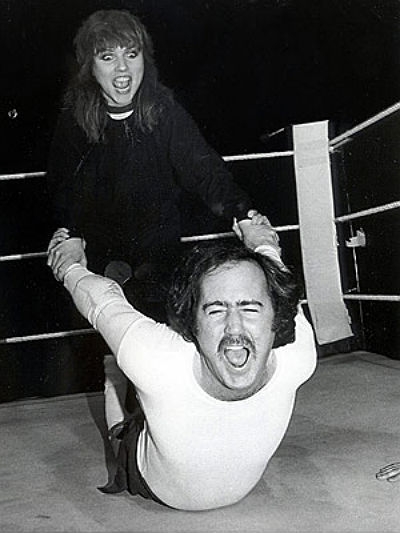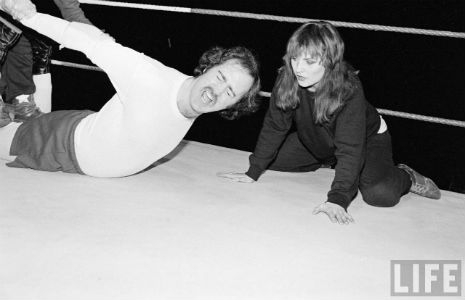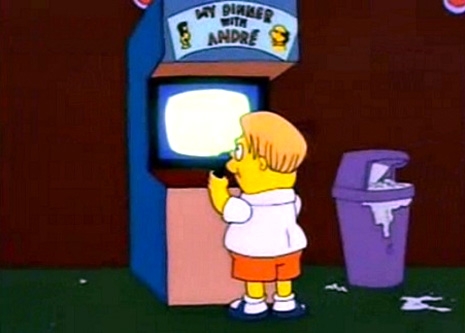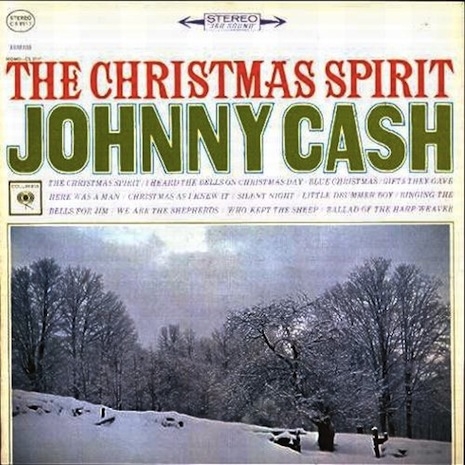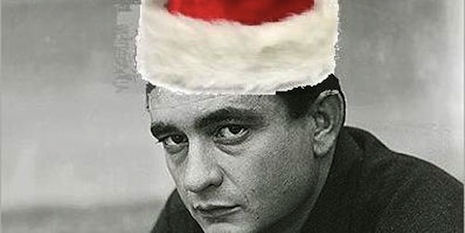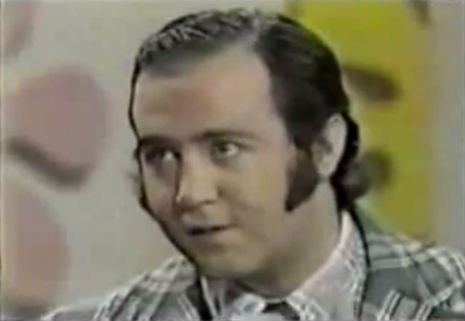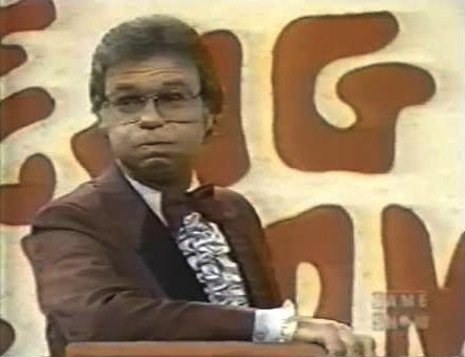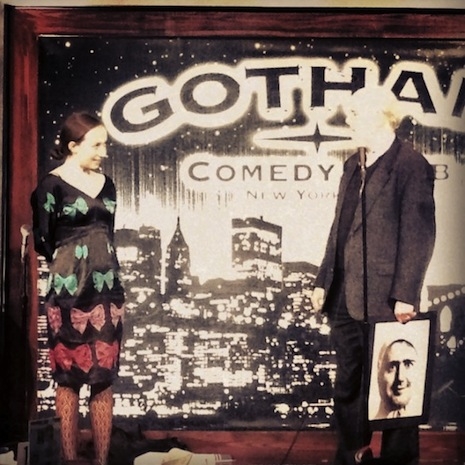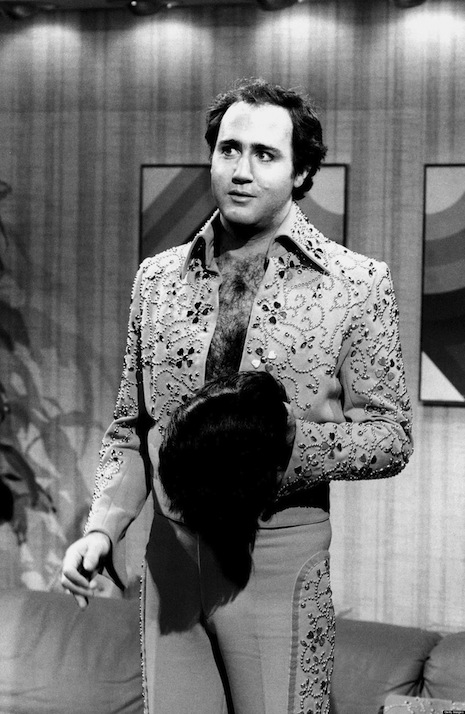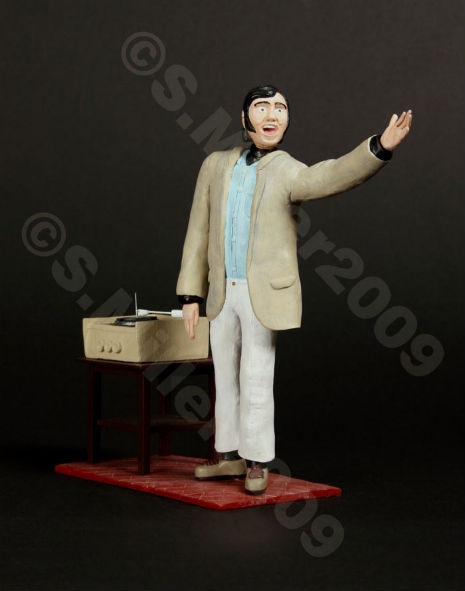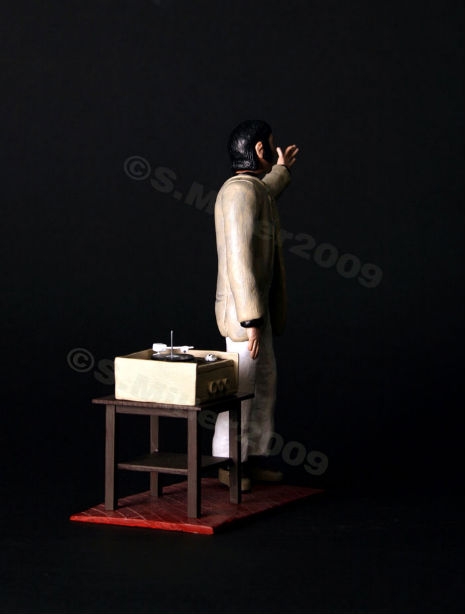
Last week Drag City released Andy & His Grandmother, previously unheard “field recordings” made by the legendary dada anti-comic Andy Kaufman in the late 1970s. The tapes show Kaufman pulling friends, family members and total strangers alike into his provocative acts of real life mayhem and reality-altering pranks. (My best friend once gave him a lift home from LAX. Kaufman, then a highly recognizable face on network television, walked up to his girlfriend at baggage and asked for a ride home. I asked him what it was like and he said flatly “Really weird.”).
Andy & His Grandmother was edited down from from 82 hours of micro-cassette tapes by Vernon Chatman, one of the geniuses behind Wonder Showzen (he’s also the voice of “Towlie” on South Park) and Rodney Ascher (the director of Room 237). I posed a few questions about the release to Vernon Chatman over email:
Eighty-two hours of raw material to sort through is a daunting task, to say the least. How did you attack the “not enough hours in the day” problem? Were you just listening to Andy Kaufman in the car for months on end? Multi-tasking while listening to Andy Kaufman’s private recordings seems like it would be a difficult thing to do.
I had to rage against my deep inherent laziness and force myself to sit upright, undistracted, with headphones on, listening to every second of the tapes, taking notes. So it took way too long – a couple years passed between receiving the tapes and honing the final cut with Rodney. There was a lot of marinating in different approaches and shifting ideas around.
A few times on the tapes, Andy would randomly call up a stranger who had sent him a letter, and invite the stunned fan to spend an afternoon with him – just running errands and stuff. Occasionally, listening to the tapes felt like I got to be a fly on Andy’s face for the day.
What was the signal to noise ratio like, the solid gold stuff vs the recorder merely being switched on? I would think some of it, maybe a lot of it, would be incoherent.
Tons of it was indeed incoherent. I think he was interested in the ambience and texture of his life as much as the moments of lucid goofiness he created. He’d record a blaring party. Or the rumbling white noise of a drive to the airport in his car. Or a casual meal with his parents. But mostly the tapes showcased Andy shifting in and out of performance for the benefit of no one/ himself/ the tapes. He was always on the lookout for ways to give people an experience. For the album, we focused on those moments.
Did certain themes present themselves as you went through the tapes? What was the editing philosophy?
There didn’t seem to be any guiding theme, other than Andy’s personality, his impulses. The editing philosophy was to follow Andy’s lead as much as possible—to zero in on the moments where he spelled out his intentions and execute them as we thought he would have. The overall goal was to not craft a biographical or historical document, but build an album of tracks – an entertaining interesting strange funny honest experience, as true to Andy’s intentions as possible. Of course, it isn’t possible to fully achieve that goal, but we figured don’t mess with his tapes if you aren’t going to try.
In these field recordings, were there certain “sleight of mind” tropes that Kaufman utilized to get his put-ons moving in a Kaufman-esque direction?
Well, I know from Lynne [Margulies, Kaufman’s girlfriend] that occasionally Andy put on little costumes when he would go out messing with people in public. But most of the stuff on the tapes were bits he created spontaneously. He slid invisibly in and out of performance. Sometimes he would use the sliding back and forth to further befuddle folks around him. His greatest “trick” might have been his weird combination of relentless commitment and infinite slipperiness. He never had to hide an ulterior motive because all (none) of his motives were ulterior. He had no corners to get cornered into. He was compelled to meddle in any available cranny, and equally interested in every type of reaction.
He’d get obsessed with certain things – he loved tormenting one particular woman, a good friend of his, whom he couldn’t help winding up just to see her spin. We thought briefly about making the whole album only tracks of Andy infuriating this woman. But there was too much other great stuff.
The liner notes aren’t very forthcoming about what’s what. Were you able to piece together the context for most of the things you selected or was that mostly mysterious to you?
A lot of it was like holding my head under murky water with open eyes, looking around trying to cobble a sense of what the hell is going on. More often than not, the context became clear. One time, Andy was talking openly on the phone with a sweet young lady about how desperate he was for some help getting laid (or as Andy called it, “getting some hey-hey-hey”). After 5 minutes, I realized the woman on the other end of the call, happily trying to help score him a little hey-hey-hey, was Andy’s sister.
How much of it was labeled in a useful manner to a future Andy Kaufman archivist like yourself?
Andy labeled the tapes in an almost illegible scrawl. I couldn’t understand most of the labels until after I listened to the tapes. I kept only scrappy sloppy disjointed notes to myself. Also I dribbled a lot of gravy on them. Maybe there should be a website that just runs the tapes uncut on a loop forever. And plays a live video feed from one of Andy’s favorite brothels or/and petting zoos to go along with it.
You write in the liner notes that you can’t really learn anything about a person from listening to 82 hours of them on tape. C’mon! Nothing?
Here’s something I didn’t exactly learn, but that I had confirmed: Andy really seemed to be, in every crevice of his life that I got to peek into, as driven by sincere kidlike wonder as I had hoped he was. There was no evidence of a cynical or needy ego manufacturing his persona or contriving a myth – even though he enjoyed playing around with all that stuff, his creative urges all seemed to come from an utterly pure place.
Buy Andy & His Grandmother on Amazon
Posted by Richard Metzger
|
07.24.2013
10:36 am
|
